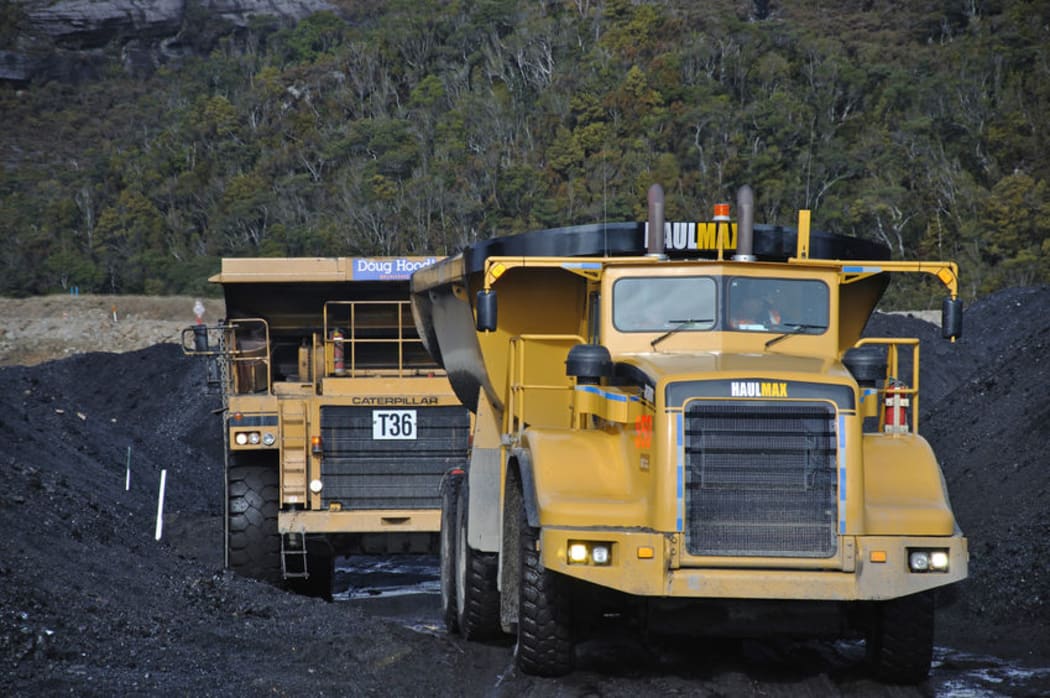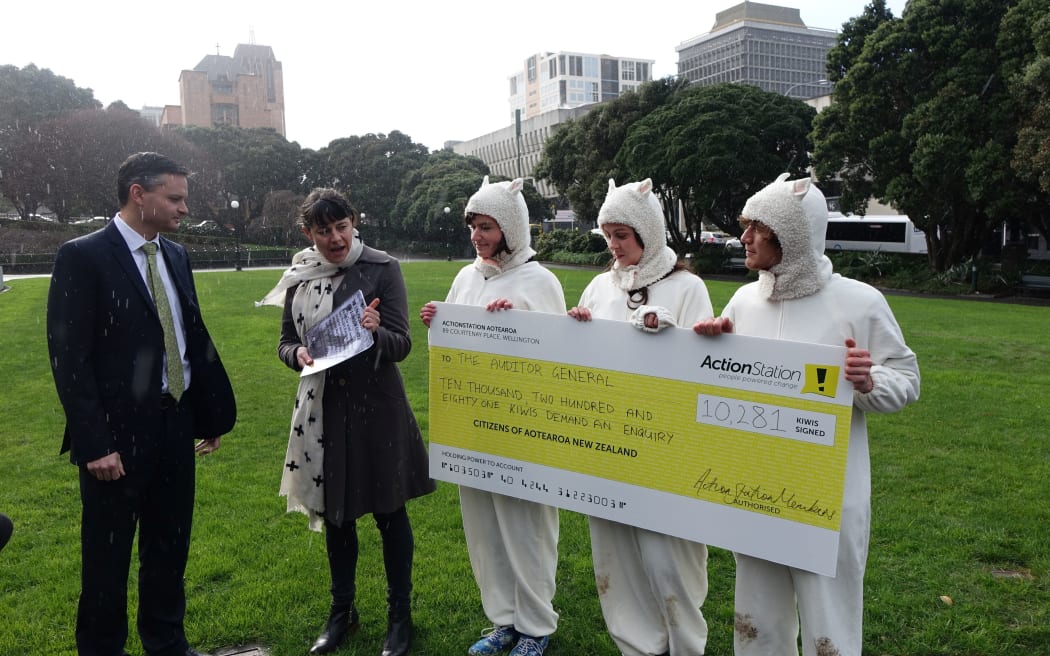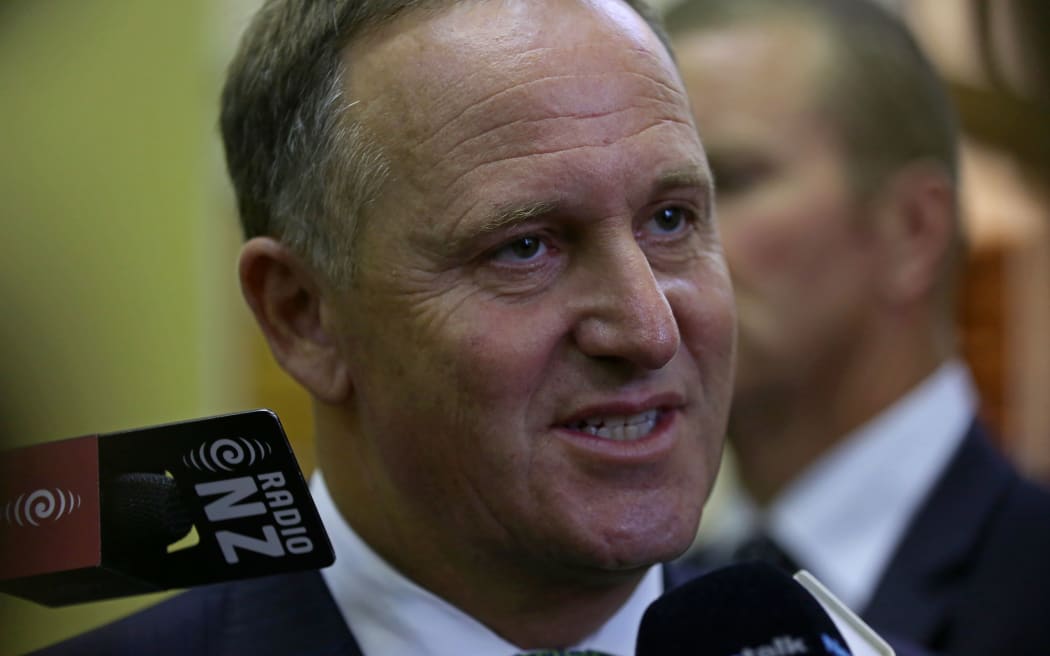Power Play - It has been another bad week for the Government.

Huge trucks move high-grade coal from a stockpile at the Stockton Mine near Westport. Photo: 123RF
Not only has it been unable to shake off criticism of its controversial Saudi farm deal, its coal company Solid Energy has gone into voluntary administration.
The best the coal company can now hope for is that some of its mines might be sold over the next two-and-a-half years, at least saving those remaining jobs at the coalface.
But the Government is essentially walking away from the company which only a few years ago was seen as one of the jewels in the Crown.
While government ministers blame the coal company's troubles on the fall in international coal prices, management decisions taken some years ago have also played a significant part.
There are still questions about the Government's oversight of the company.
Labour points out that as far back as 2009, the Government demanded that the company pay greater dividends and take on more debt.
As a result, Solid Energy's bank debt rose from $50 million to the current $328 million. Its debt was too huge for it to be able to absorb a big drop in income as coal prices dropped.
Its costs had also risen as the previous management and board embarked on an ambitious and, ultimately, foolhardy expansion, which included investments in areas which were not core business for the company.
Government ministers were warned early about the company's problems and Labour accuses them of standing back and doing nothing.
The Government rejects Labour's criticism, but Solid Energy's woes have occurred on its watch.
Meanwhile, no matter how hard the Government tries it cannot shake off nagging questions about its deal to placate Saudi businessman Hamood Al-Ali Al-Khalaf.

A petition calling for the Auditor-General to investigate the Saudi sheep deal was received by the Greens' James Shaw (left) outside Parliament on 23 June. Photo: RNZ / Benedict Collins
The Government paid $11 million to Mr Al-Khalaf in cash, sheep and equipment, saying he had threatened legal action over New Zealand's ban on live sheep exports and could have sued for up to $30 million.
The story has been running for months now and Government ministers have been unable to shut it down.
It will get even further impetus if Auditor-General Lyn Provost decides to investigate the matter further.
Given the nature of the deal and the questions it raises about the use of public money, it would be a shock if the Auditor-General decided to look the other way.
Last week the Government was finally forced to release all the documents related to the deal and bit by bit as journalists and opposition parties trawl through the roughly 900 pages, new information emerges about what went on.
This week, Prime Minister John Key again found himself under scrutiny when he told Radio New Zealand's Morning Report programme the deal had never been about compensation for Mr Al-Khalaf.

Photo: RNZ / Alexander Robertson
Later that day, Labour unearthed a document in the papers released under the Official Information Act which confirmed that compensation had been very much on the mind of the Government.
The Ministry of Foreign Affairs paper, dated 27 April 2012, noted officials were working on three work streams related to the Saudi deal.
One of the work streams, the document said, was about "finding an appropriate mechanism to meet Al Khalaf's concern for 'compensation' (possibly through the joint venture)".
While it related to Mr Al Khalaf's worry about compensation, officials were clearly working on meeting his concern.
National continues to fob off criticism of its role by blaming the previous Labour-led Government for leaving a mess for it to clean up.
There is no doubt the tensions with Mr Al Khalaf and Saudi Arabia began under Labour when live sheep exports were banned. But the ban was imposed for very good reason and National has kept it in place.
The Government's consistent political response to criticism has been to blame either the previous Labour-led government or events out of its control, such as the Global Financial Crisis, the Canterbury earthquakes or, in the case of Solid Energy, the dramatic drop in coal prices.
So far it appears to have worked in convincing the public it should not be held accountable.
Yet seven years on from winning the Treasury benches, and with the impact of the Global Financial Crisis and the Canterbury earthquakes receding, that approach might be wearing thin.
In considering both the Solid Energy collapse and the Saudi deal, National still has serious questions to answer.
Follow Brent Edwards on Twitter @rnzgallerybrent

